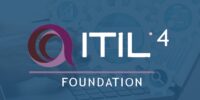Advanced Cloud Computing
Overview: In this cloud computing training, you will evaluate and assess the business and technical benefits of cloud computing. Additionally, you will gain the foundational knowledge to analyze cloud applications for use in your organization and learn how cloud computing …
Overview
Overview:
In this cloud computing training, you will evaluate and assess the business and technical benefits of cloud computing. Additionally, you will gain the foundational knowledge to analyze cloud applications for use in your organization and learn how cloud computing can supply efficient solutions to technical, business, and administrative challenges.
Objective
In this Cloud Computing Training course, you will learn how to:
- Exploit the benefits of the different cloud service models: SaaS (Software as a Service), PaaS (Platform as a Service), and IaaS (Infrastructure as a Service)
- Leverage services provided by the major public cloud providers
- Configure and provision resources on a private IaaS cloud
- Apply tips and best practices when adopting the cloud
- Leverage continued support with after-course one-on-one instructor coaching and computing sandbox
Outline
Module 1: Introduction to Cloud Computing
- Defining cloud computing
- Components of a computing cloud
- Differentiating types of clouds: public, private, and hybrid
- Delivering services from the cloud
- Categorizing service types
- Comparing vendor cloud products: Amazon, Google, Microsoft, and others
Module 2: Adopting the Cloud
- Key drivers of cloud computing solutions
- Instantaneous provisioning of computing resources
- Tapping into an infinite storage capacity
- Cost-effective pay-as-you-use billing models
Module 3: Exploiting Software as a Service (SaaS)
- Characterizing SaaS
- Streamlining administration with centralized installation
- Optimizing cost and performance with scale on demand
- Comparing service scenarios
- Improving collaboration with business productivity tools
- Simplifying business process creation by integrating existing components
Module 4: Delivering Platform as a Service (PaaS)
- Exploring the technical foundation for PaaS
- Specifying the components of PaaS
- Analyzing vendor PaaS provisions
- Selecting an appropriate implementation
Module 5: Deploying Infrastructure as a Service (IaaS)
- Enabling technologies
- Scalable server clusters
- Achieving transparency with platform virtualization
- Elastic storage devices
Module 6: Building a Business Case
- Calculating the financial implications
- Comparing in-house facilities to the cloud
- Estimating economic factors downstream
Course Features
- Duration 20 hours
- Activities Digital Transformation






